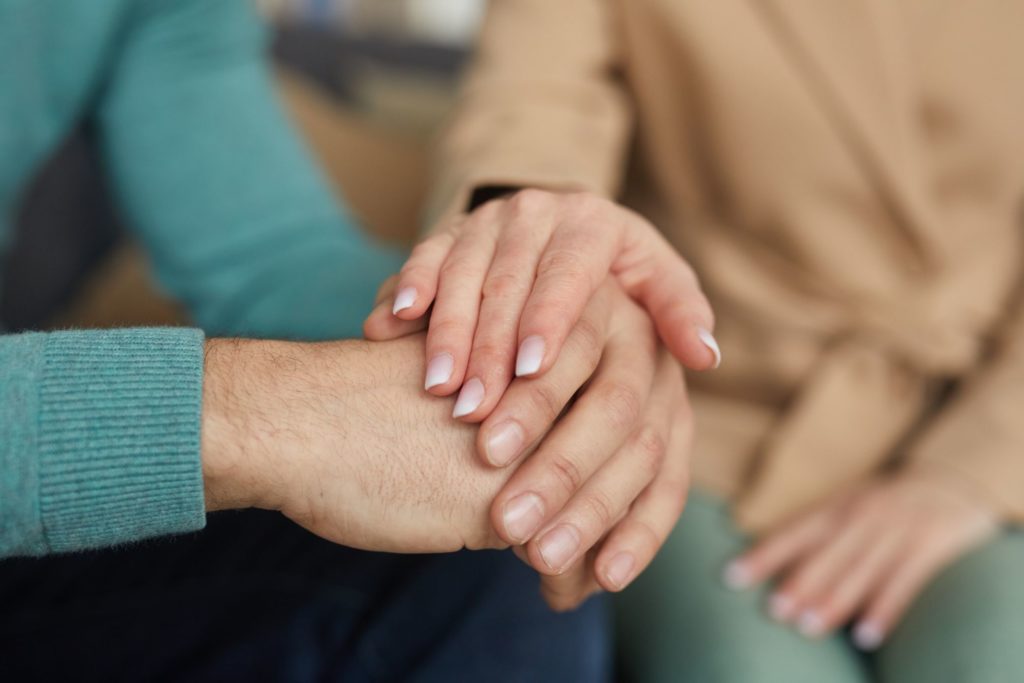It’s a fact that when we help others in life, we help ourselves at the same time. It doesn’t matter what profession we’re in, what kind of neighborhood we live in, or what we do to help out in the community. Everything comes back full circle.
That’s why in business, you will often find one employee being mentored by a more senior staff member, getting the benefit of their knowledge and even the mistakes they’ve made along the way. It’s no different in recovery. When you give your time, energy, and knowledge to someone just starting their recovery journey, it has a positive impact on them and their recovery. It also helps improve your self-esteem at the same time.
That will build an even stronger foundation for your path to sobriety.

Your Help for Someone in Recovery Doesn’t Have to Be Anything Big
If you have a family member entering a recovery program or starting to attend 12-step meetings, letting them know you support this new chapter in their life and are proud of them for taking this first step will make a huge difference to them.
It can mean the world, actually.
Plus, it will help you as well, even though you’re not in recovery, but it will help your self-esteem and give you a warm, proud feeling that you’re helping them with their recovery.
The same goes if you’re further along in your recovery than someone else you’re mentoring or encouraging. Here are a few other ways you can help them:
- It’s important that the one recovering has someone in their corner who they can talk to at any given time. Let them know they can call you when they need to talk or when they’re feeling weak. If you work and/or have a family, set some boundaries since it may not be convenient or possible for them to call at two o’clock in the morning, or you might not be available to talk for long during work hours. If you can’t take a call then, you can ask if you can postpone the conversation a bit or help them find a 24-hour hotline.
- Understand that, as a newly sober person, they’re likely to slip backward from time to time. Be prepared for this and don’t berate them or punish them for slipping. Instead, let them know you understand and that you still love and care about them. Help them learn from their mistake rather than dwell on them.
- Some people with former drug or alcohol problems are unemployed — possibly because of their dependency — and some may even be homeless. Avoid preaching to them about getting a job or finding a place to live. They are juggling a lot and may only be able to focus on one thing at a time. Once they become more comfortable and stable in sobriety, they may then have the fortitude to start pursuing the next big item on their to-do list. But if you hassle them about all these things at once, they may start to resent or distrust you, and their sobriety may take a big hit. When they’re ready, kindly and patiently help them find employment and housing.
- If they have said or done something when under the influence that has hurt you, don’t bring it up during their recovery. Chances are you’ve hashed it out plenty of times in the past. Now is one of those times when it’s best to just let it go. If you must bring it up, try to do so in family or relationship counseling where there is a mediator, and you can work through it calmly.
What if You’re in Recovery and Doing the Helping?
If you’re in recovery and notice someone who is brand new in your 12-step group or aftercare program, for example, why not welcome them and make them feel a little more at home? Some other tips that you can offer to someone else that will also benefit your recovery are as follows:
- Since you are one of the first people at the meeting who rolled out the welcome mat for them, they may feel comfortable talking to you about their journey. If they express the need to talk, make a space that is quiet, private, and comfortable, and give them that time. Remember when you were the newbie to post-treatment life. What did someone else do that helped you, or what do you wish someone had done?
- Helping someone else can increase happiness and reduce stress levels. In turn, that could reduce your urge to drink or use drugs. Have you ever donated something to Goodwill or another charity? Remember how good you felt, knowing that you had gotten rid of stuff you no longer needed or wanted but that someone else would benefit from your donation?
Whether you’re paying it forward or just helping someone because you feel the desire to, when you help someone, you also help yourself. If everyone did that, it would make the world a better place.

Small Things Have A Big Impact In Recovery
Finding ways to help someone in recovery doesn’t have to be complicated, nor does it have to be anything grand. Often, small things have a significant impact on someone. When you’ve helped someone, it gives you a better feeling about your own recovery.
Something else which has a big impact in recovery: sober living. A sober home is the ideal place to recovery from drug and alcohol addiction, a safe, drug-free environment filled with people on the same mission. Finding a sober home can be difficult, however.
That’s why we created SoberLivingNearYou.com. Our directory places thousands of sober living houses at your fingertips, giving you an unparalleled selection of sober homes for every personality, budget, and need.
Don’t wait – your search starts here!



